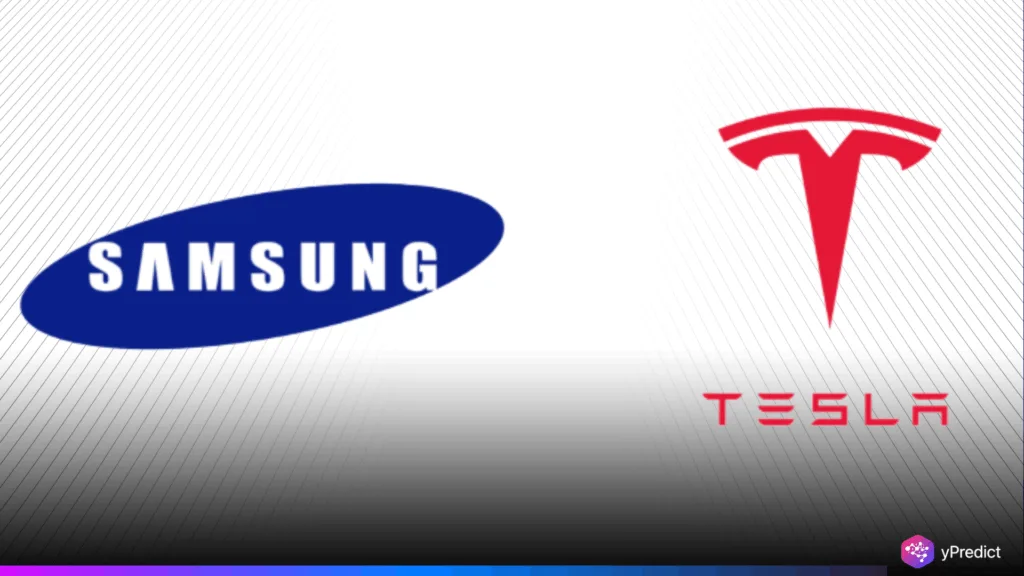
Elon Musk confirmed Samsung’s $44 billion chip fab in Taylor, Texas. It will be used to manufacture Tesla’s next-gen AI6 chip. The July 28, 2025, announcement revealed Tesla’s deep involvement in optimizing the facility, resolving delays caused by prior customer shortages. This move follows a $16.5 billion chip supply deal between Tesla and Samsung, which runs through 2033. The fab, located near Musk’s home in Texas, could be managed in real-time and with shorter iterations. The analysts believe that this collaboration will enhance the American chip manufacturing industry. Speed up Tesla’s automation of vehicles through artificial intelligence.
Strategic Partnership Rescues Samsung’s Texas Fab and Empowers Tesla
The Taylor, Texas fab was initially announced by Samsung in 2021. Expanded from a $17 billion plan to a $44 billion mega-site, supported by a $6.4 billion subsidy under the U.S. CHIPS and Science Act. Yet progress stalled in 2024 as Samsung struggled to secure major clients. That changed with Tesla’s $16.5 billion commitment to produce its AI6 chip. A powerful upgrade over the AI5, designed with TSMC. Musk’s announcement on X confirmed Tesla’s direct role in helping maximize manufacturing efficiency at the site.
The chip, likely based on Samsung’s 2nm GAA process, will power Tesla’s next generation of self-driving and AI systems. With a completion target set for late 2025, the fab will deliver high-performance chips critical for Tesla’s vision of autonomous mobility. By splitting sourcing between Samsung and TSMC, Tesla mitigates supply chain risks. The fab’s location near Musk’s Austin-area home gives him a rare opportunity for hands-on oversight. Mirroring his successful operations approach at SpaceX and Gigafactories.
Broader Impacts: Chip Innovation, U.S. Jobs, and Geopolitical Shifts
The consequences of this liaison are extensive. In the case of Tesla, it guarantees a steady supply of chips for heavy AI products such as Full Self-Driving (FSD) and the Optimus robot. To Samsung, it is a rebirth of its foundry business that has lagged behind TSMC in the last few years. Investors expect that this would raise Samsung Foundry’s annual income by 10 percent, making it credible in the advanced chip business once again.
The fab will create 2,000 permanent jobs and 6,500 construction jobs in Texas. According to the research conducted by MIT in 2023 on automated production. Musk will reduce the costs of producing chips by a significant 30 percent by focusing exclusively on high efficiency. Geopolitically, the move strengthens tech connections between the U.S. and South Korea and curtails the dependence on chips made by Taiwan, a controversial matter regarding tensions in the world. Since chip supply has now become a national security issue, this transaction fits with U.S. reshoring initiatives and offers an example of how the reliance on chip access can occur through the use of the private sector as a strategic driver of independence in technology.
A Blueprint for AI-Driven Semiconductor Strategy
The fact that Elon Musk has teamed up with Samsung in the Texas chip fab is not just a supply contract but a transformation in intelligence and chip dominance. It facilitates one of the most essential steps in Tesla’s autonomous plans, as well as providing Samsung with an opportunity to cut its losses. To the U.S., it is a significant step towards an increase in domestic chip production and a step in the direction of decreased geopolitical vulnerability. When it works, then the alliance may become a pattern of how technology majors would cooperate in high-stakes, infrastructure-intensive innovation within the AI age.






